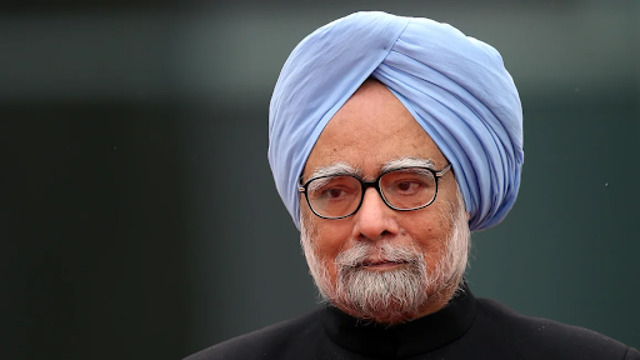
India's former Prime Minister, Manmohan Singh, is seen arriving at the Chancellery in Berlin, Germany, on April 11, 2013. Getty Images
India’s former Prime Minister, Manmohan Singh, passed away at the age of 92, leaving behind a legacy as one of the country’s most influential leaders. Singh, who is widely regarded for his economic reforms and contribution to India’s rise as a global economic power, was rushed to the All India Institute of Medical Sciences in New Delhi on Thursday after experiencing a sudden loss of consciousness at home. Despite urgent medical efforts, Singh was declared dead later that night, with the hospital noting that he had been receiving treatment for age-related health conditions.
Prime Minister Narendra Modi expressed deep sorrow at Singh's passing, describing him as one of India’s “most distinguished leaders.” He acknowledged Singh’s efforts as Prime Minister to improve the lives of the Indian people, noting his far-reaching contributions to the country’s growth.
Singh, often seen wearing his signature blue turban, served as India’s first Prime Minister from the Sikh minority and led the country from 2004 to 2014. Known for his calm demeanor and meticulous approach, Singh oversaw a transformative period for India, which included economic reforms that set the stage for the country’s rapid economic expansion. His leadership helped lift millions out of poverty and put India on the global economic map.
An Oxford-trained economist, Singh was largely credited with driving major economic reforms in the 1990s as India’s finance minister. His bold moves, including privatizing state-run companies and opening up the economy to foreign investment, helped stabilize the country’s financial crisis at the time and kickstart unprecedented economic growth. India soon became one of the world’s largest and fastest-growing economies, ranking as the fifth-largest today.
One of the most significant moments of Singh’s tenure as Prime Minister was the signing of a historic nuclear-energy deal between India and the United States in 2008, marking a new chapter in the diplomatic relations between the two countries. In response to Singh's death, U.S. Secretary of State Antony Blinken paid tribute, calling Singh “one of the greatest champions of the US-India strategic partnership,” and lauding his commitment to strengthening ties between the two nations.
Despite his success, Singh’s image was marred by corruption scandals involving some of his ministers during his second term as Prime Minister, although Singh himself was never accused of wrongdoing. Known for his personal integrity and humble nature, Singh was often described as a “reluctant king,” having never set out to become Prime Minister. His political ascent was largely due to the efforts of Sonia Gandhi, leader of the Congress Party, who chose him for the role after her party’s surprise election victory in 2004.
Singh was born in 1932 in a small village in what is now Pakistan, and grew up in a large, impoverished family. He went on to study economics, earning a degree from Cambridge and a Ph.D. from Oxford before returning to India to teach. His long career in public service began in 1971 when he joined the commerce ministry as an economic adviser. Singh’s pivotal role in the government during a period of financial crisis, particularly as Finance Minister in the early 1990s, paved the way for the dramatic reforms that reshaped India’s economy.
After stepping down as Prime Minister in 2014, Singh adopted a lower profile. However, just months before his death, he reflected on his time as Prime Minister, expressing his belief that history would be kinder to him than contemporary media and opposition parties had been.
Singh leaves behind a wife and three daughters, and his passing marks the end of an era for Indian politics. His contributions to India’s growth and his role in shaping its future will be remembered for years to come.















